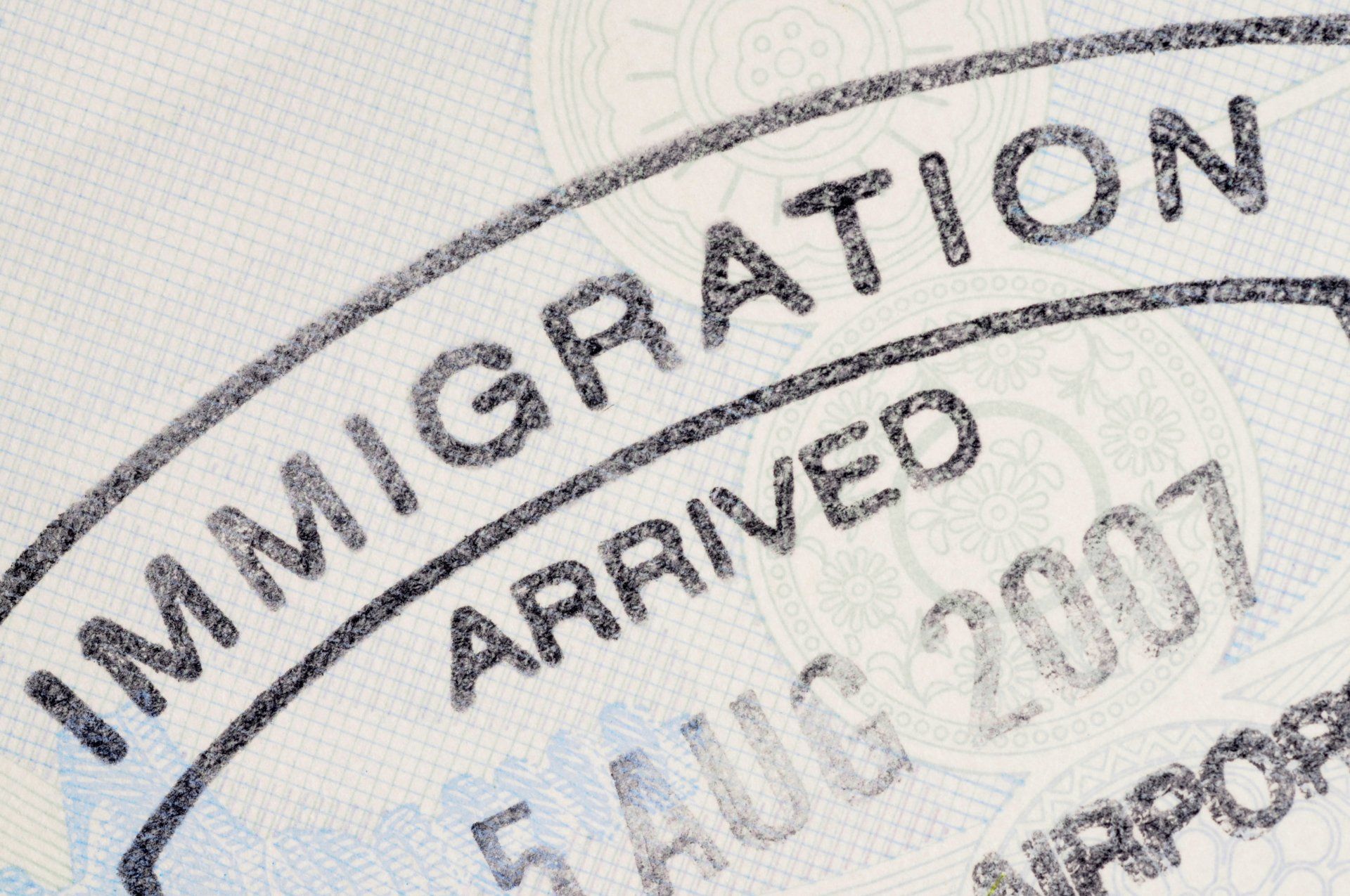How a criminal record can impact your professional life?
Written by Law Office of Rolando Cantú, reviewed by Rolando Cantú
How a criminal record can impact your professional life?
As you may know when you face a criminal charge or conviction, whatever your gravity, it can leave a permanent mark on your criminal record. Depending on the nature of the crime, this can have major consequences in your professional life.
In fact, when you find yourself involved in a criminal case, you will quickly realize that the most important stakes are not focused on how many days or years you might spend in prison but rather the consequences that it may have on an individual basis and over time. Given this, you should be well aware of the personal life influences of having a criminal record in a professional environment. From difficulties in your professional life, such as find employment, to problems with your immigration status. The range is very wide and varies depending on the criminal law.
What does a criminal record prevent you from doing? We tell you how a criminal record can impact your professional life.
- How a criminal record can impact your professional life?
- Family Life
- Occupational Life
- Immigration Status
- Work environment and Employment
- School admissions
- Driver's license reinstatement
- Voting rights
- Subsequent Crimes
- Personal Bonds
- Emotional & psychological impact
- Can you have something removed from your criminal record?
- The Next Step
Family Life
It's no surprise that a problem like this impacts your family life. From your relationship with her to whether you want to start one. A criminal conviction may make it difficult, if not impossible, for you to proceed with or adopt a child. For example, in Texas, you cannot adopt a kid if you've been convicted of a misdemeanor crime involving a family and permitted a kid to access firearms in the past, committed an offense regarding alcohol, or violated the Texas Controlled Substances Act. Likewise, it can also limit your child custody rights, from a case involving violence to one involving domestic abuse of any kind.
Occupational Life
When it comes to your professional life and your ability to practice a profession, such as medicine, lawyering, or accounting; the impact is still very clear. For example, according to 38 CFR 5.562 (d) of the US Department of Labor, if you have a criminal record, you will not be able to practice engineering. Even when it comes to specific fields.
Another example is from the American Bar Association where they state that for some jobs, such as in the banking industry or when working with children and/or elderly people, you cannot work in these fields if you have a criminal record.
Immigration Status
If you are a foreign national or have a status in process regarding either residency or naturalized citizenship, having a criminal record will significantly impact the outcome of these. From modifying or completely revoking your status, to losing your job and being deported, you may lose the possibility of reapplying for re-entry into the country. Even when you are in the US, your criminal record can lead to extended imprisonment and even deportation.

Work Environment and Employment
Not being able to obtain gainful employment is one of the many collateral consequences of criminal records. Continuing on the employment aspect, if you have a criminal record, even without a conviction, it can severely affect your career and economic stability. Many employers, before hiring, do background checks and criminal history reviews. Current or prospective employers may drastically change their perception of you and your credibility, limiting your ability to gain employment or maintain stable employment by repeatedly questioning your ability to perform job duties.
School Admissions
If you were considering continuing your professional career, but for some reason, you have a problem with the criminal justice system, criminal convictions, or felony convictions, you may have problems for your future wellbeing. Some institutions make a background check before deciding to admit you or not.
Even a minor charge, a wrongful accusation that ended up in your criminal history, or other types of criminal charges can severely affect your ability to get into or graduate from college or university, limiting your options, or eliminating them altogether. This, of course, depends on the individual policies of each institution and the type of criminal offense for which you have been charged.
Driver's License Reinstatement
Having a criminal record may affect your ability to get your driving license. If you have faced DUI charges, unless it was for alcohol, fluocinolone acetonide cream USP 0.01, or any other drug-related DUI charge, you can eventually get your driver's license reinstated. On the other hand, if you have DUI or DWI convictions involving alcohol, fluocinolone acetonide cream USP 0.01, or any other drug-related DUI charge, this is virtually impossible and you may have your licenses restricted forever.
Voting Rights
For some states, having a criminal record means you are unable to vote again. For the US Electoral College, you might not be able to accomplish your civic duty as an elector due to your criminal records.
If you currently hold a position that requires some type of public voting right and you have a criminal record with certain types of convictions, you may lose the right to vote. This is especially true if you have been convicted of a felony and have certain criminal records.

Subsequent Crimes
When one faces a conviction for the first time, it's easy because you don't have other offenses on your record. But when you are committing additional crimes, the record of your first conviction will be presented as evidence in the second case. This is how it works, but if you have a criminal record, you are at greater risk of harming yourself or others. It will be harder to get a job. You may not be able to get the right to vote, even if you are judged innocent of all charges.
Severe penalties can be further aggravated if you have any other problems with the criminal justice system, being the consequences of a criminal record a relevant factor in the aggravation of your criminal case, and can result in more severe penalties, like jail time, certain convictions among other long-term consequences.
Personal Bonds
It is no surprise that a criminal record has a significant influence on your personal relationships. People around you may develop behaviors such as emotional distancing, or any kind of avoidance against you. People, most employers, and coworkers, or even your family may not want to maintain personal bonds with you, since this may make them think that you have a negative social stigma and it may cause them some kind of problem or even result in discrimination from the community around them.
A criminal record comes with its own social stigma. This means that you will be seen in a different way from the rest of society because it's likely that people will think less of you and your character, if not completely ignore your existence. Moreover, if you take a guilty or apologetic attitude it can affect your reputation with people both positively and negatively, which can have repercussions on your mental and emotional health.
Emotional and Psychological Impact
As mentioned previously, having a criminal charge record can also affect your mental health. This is one of the most common consequences for those who have been convicted of some kind of criminal offense. There are many cases in which individuals with criminal records may suffer from depression, anxiety, overwhelming feelings, or other conditions that greatly result in poor emotional and physical conditions. All these symptoms might develop behaviors such as post-traumatic stress disorder (PTSD), difficulty sleeping, or unexpected outbursts of anger.
Likewise, post-traumatic stress disorder may result in the adoption of behaviors such as self-imposed social isolation, which would lead to emotional distancing, thus affecting the personal life.

Can you have something removed from your criminal record?
Yes, you can get your record cleared. In order to do that, it is necessary to have a criminal history expunged. While this sounds pretty good from the outside, there are many conditions that must be met for you to qualify. You must remember that once you have completed your sentence, the process is difficult but not impossible. It will depend on various factors such as what kind of crime was committed when it happened and how much time has passed since then. You can talk to the Criminal Defense Attorney, Rolando Cantu at the Law Office of Rolando Cantu so he can help you with this process.
The lack of representation is often the main reason why people do not take advantage of their ability to have their records cleared, whether it's because they don't have the financial resources or because there are other difficulties that prevent them from doing so.
In order to have your record cleared, you must attend a legal workshop in which a lawyer will review your case and give you instructions on how to get it done. It is not an easy process, but you must be aware that it exists and that you should take advantage of it if necessary.
Even so, there are some ways in order to get rid of criminal records entirely, such as:
- Expungement: If you are granted an expungement, it means that you no longer have to live with the associated stigma. What it does is erase the record of your arrest or conviction so that it doesn't appear in most, if not all records. For this to become possible, there are multiple legal requirements. If you were given a conditional plea, you may be able to have it expunged after completing probation.
- Pardon: If you have been granted a pardon by the President of your country or any other kind of authority, then it means that you no longer have the conviction on your criminal records.
- Sealing: Sometimes it is possible to seal your record. This means that the records of your conviction are no longer accessible by the public, but they can be opened if you give permission for this or if there was a need to consult any kind of criminal history for some reason.
- Deletion: If you can get the court to delete your record, it means that no evidence of your earlier arrest or conviction will ever appear. However, there is a limited number of crimes where this is possible.
- Juvenile record: If you were a minor when you committed your crime and it has been only a few years since then, you might be able to ask for your records. This is especially true in the case of juvenile delinquent cases and misdemeanors.
- Non-conviction: Sometimes, it is possible to ask for your record to be sealed or even removed if you were not convicted of the crime. This also requires that it has been only a short time since the incident happened.
- Some other factors: There are some other factors that can affect your chances of having your records removed or sealed. For example, if you were wrongly convicted for a crime someone else committed.
A past criminal record can affect your life in several damaging ways, from your personal relationships to your professional life. If there is no way to get the conviction removed from your criminal history, you must try to take certain measures that can begin mitigating the consequences of having criminal records in order to be able to get rid of its impact on your future.
However, if the crime is too serious, for example, you were sentenced to life imprisonment or sentenced to serve in the federal penitentiary, even if you were close to completing your sentence, you wouldn't be able to have the charges expunged.
The Next Step
Having a criminal record can have a variety of consequences on your professional life depending on the type of offense for which you have been convicted. The way a criminal record impacts society is often a direct result of the potential harm or public safety risk someone with a criminal history could repeat the offense.
The above were just a sampling of the ways in which a criminal record influences your professional life, however, there are many more ways in which a record can affect you in your day to day life, and furthermore bring long term consequences, as well as adopt behaviors that further affect your quality of life.
Therefore, if you need legal advice, criminal defense attorney Rolando Cantu will assist you with all stages of the legal process with unwavering commitment. From examining charges and carrying out independent research to civil rights examination, peer evaluations, court appearances at all pre-trial hearings, filing of all discovery motions, and a trial before a jury (if necessary), he always takes a very aggressive approach to defending his clients.
Schedule a free consultation now to talk about your case in detail and choose the best approach for your situation, dedicated to offering high-quality legal services, the best legal information, and an excellent attorney-client relationship.











